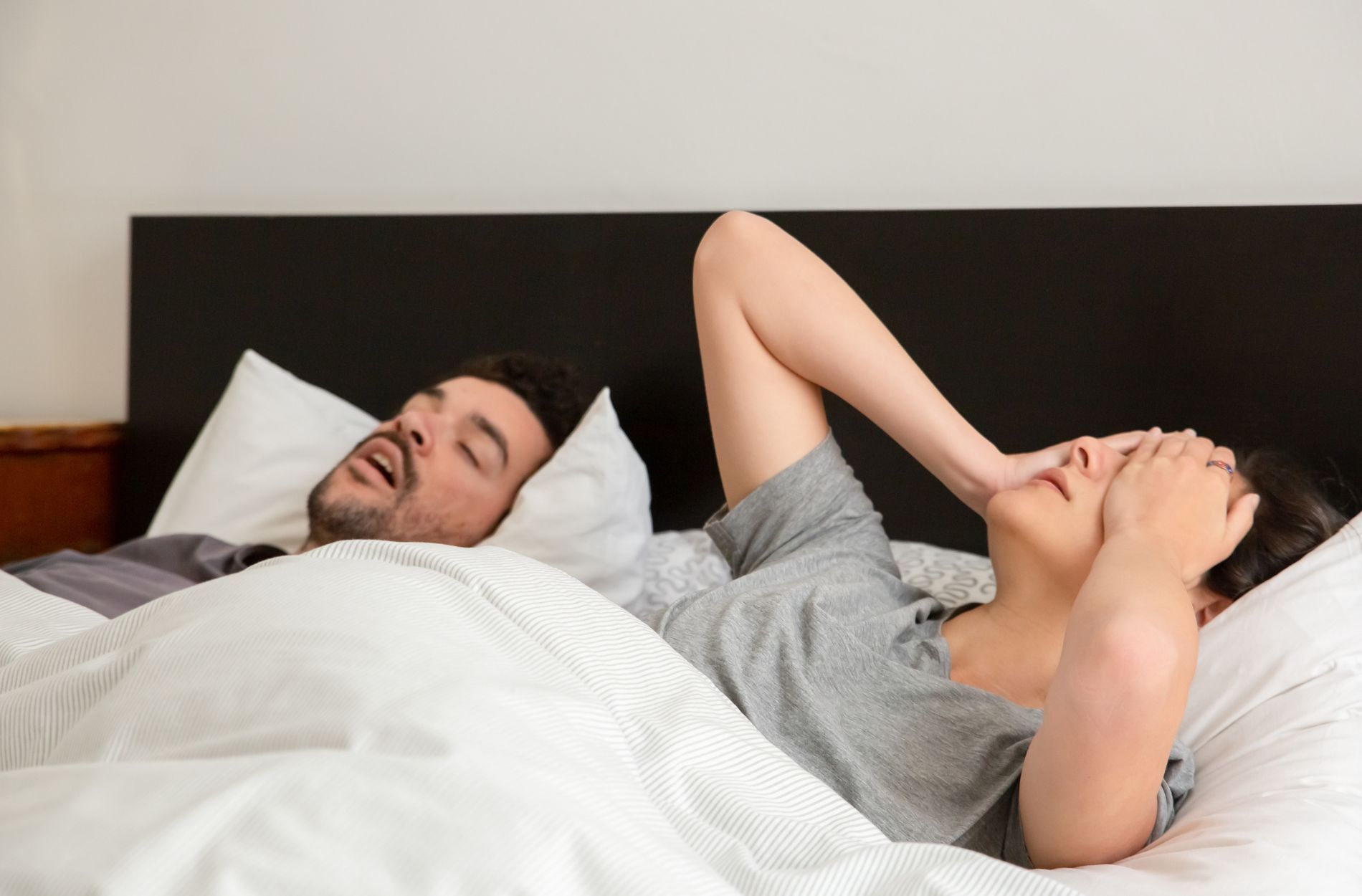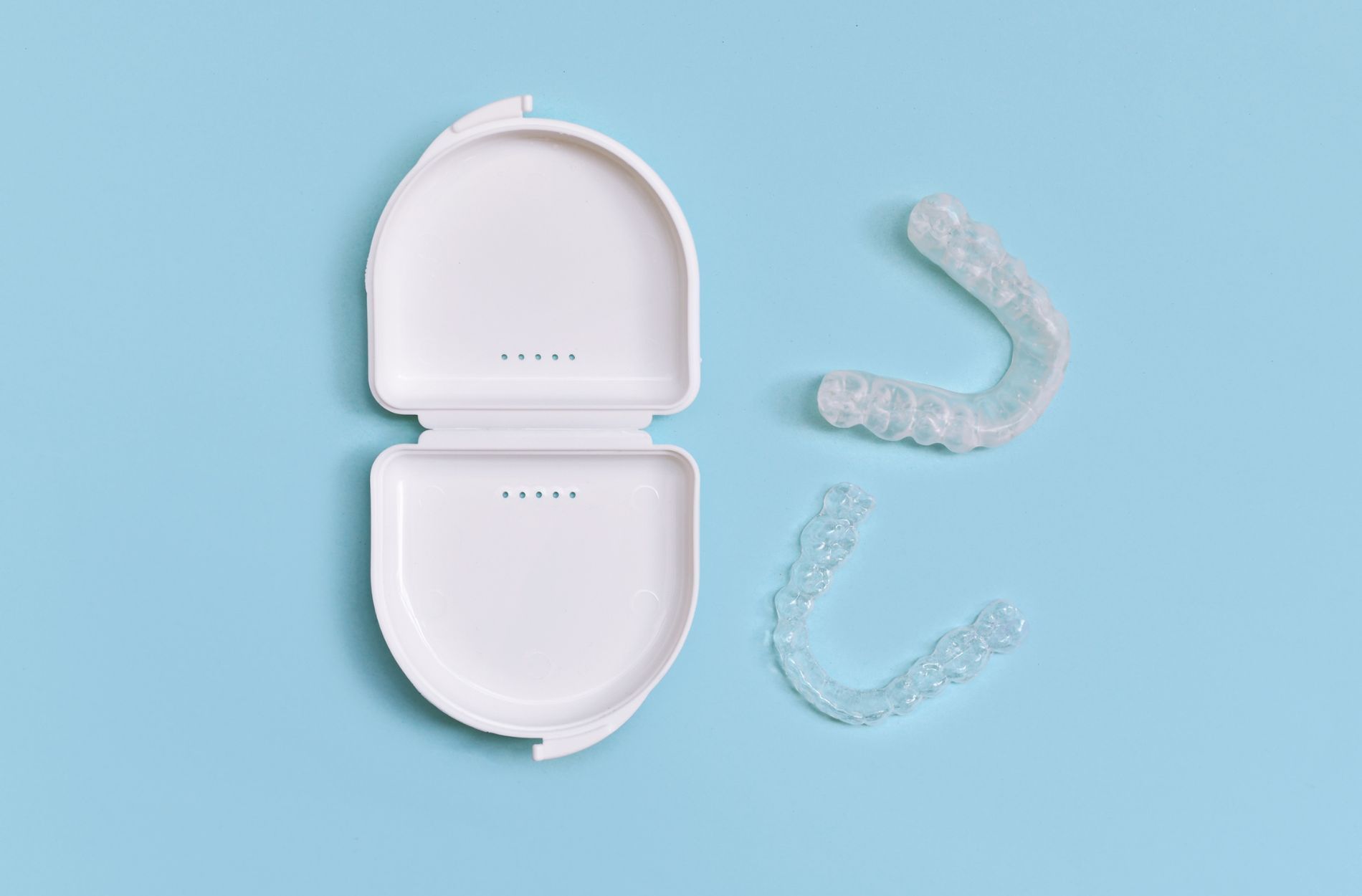Understanding the Connection Between Sleep Apnea and TMJ Disorders

Sleep apnea and temporomandibular joint (TMJ) disorders can greatly disrupt your daily life, impacting your sleep quality and overall health. These two seemingly unrelated conditions share some surprising connections that many people are unaware of. At CSAT Meridian - The Center For Sleep Apnea and TMJ in Meridian, ID, we provide specialized treatment for sleep apnea, snoring, TMJ disorders, and head and facial pain. Our experienced team understands the links between these conditions, which enables us to provide comprehensive and effective treatment solutions. In this blog post, we will explore the connection between sleep apnea and TMJ disorders and how an integrated approach to treatment can benefit those affected by these conditions.
Sleep apnea is a serious sleep disorder that causes disruptions in breathing during sleep, with episodes lasting from a few seconds to over a minute. These disruptions occur when the airway is partially or completely blocked and can happen hundreds of times per night. The most common type of sleep apnea is Obstructive Sleep Apnea (OSA) which is caused by the collapse or narrowing of the airways while you sleep. Sleep apnea can lead to severe daytime fatigue, high blood pressure, and even heart problems if left untreated.
On the other hand, TMJ disorders refer to a group of problems affecting the temporomandibular joint, which connects the jaw to the skull. TMJ disorders can cause pain in the jaw, neck, face, and even headaches. Symptoms of TMJ disorders can range from mild discomfort to debilitating pain, affecting one's ability to speak, eat, and move the jaw comfortably.
Recent studies have found a strong correlation between sleep apnea and TMJ disorders, with both conditions sharing similar risk factors and symptoms. Some of these risk factors include obesity, stress, and chronic inflammation. Moreover, it has been observed that the collapse of the airway in sleep apnea patients can put tremendous pressure on the TMJ region, making it more susceptible to damage and dysfunction.
Taking a proactive approach to understanding and treating these interconnected conditions is essential for achieving the best possible outcomes. At CSAT Meridian - The Center For Sleep Apnea and TMJ in Meridian, ID, our team is dedicated to providing comprehensive, specialized care to diagnose and treat both sleep apnea and TMJ disorders. We understand that each patient’s needs are unique, so we work closely with you to create a personalized treatment plan tailored to your specific requirements. In the following sections, we will discuss the benefits of an integrated treatment approach and how our team's expertise can help you live a healthier, pain-free life.
The Intersection of Sleep Apnea and TMJ Disorders
As we mentioned in the introduction, sleep apnea, and TMJ disorders share some common risk factors and symptoms. Research indicates that people with sleep apnea have a higher prevalence of TMJ disorders, and vice versa. One possible explanation for this link is that the physical stress caused by the collapsing airway during sleep apnea episodes exerts pressure on the temporomandibular joint, leading to inflammation, damage, and pain over time. Furthermore, both conditions can lead to disrupted sleep, which can contribute to a range of health issues, including cardiovascular problems and cognitive decline.
It is important for healthcare professionals to consider the potential links between sleep apnea and TMJ disorders when diagnosing and treating either condition. A comprehensive evaluation of a patient's symptoms, sleep patterns, and overall health is necessary to identify the most effective treatment approach for each individual.
Diagnosis: Identifying the Root Cause of Head and Facial Pain
An integrated approach to treating sleep apnea and TMJ disorders addresses both conditions simultaneously, taking into account their interconnected nature. Some examples of integrated treatment methods include:
- Oral Appliance Therapy: This treatment involves the use of custom-made oral devices designed to reposition the jaw and maintain an open airway during sleep. Oral appliances can be effective in managing both sleep apnea and TMJ disorders when properly fitted and adjusted by a professional.
- Lifestyle Modifications: Both sleep apnea and TMJ disorders can be exacerbated by lifestyle factors such as obesity, stress, and poor sleep habits. Making changes in diet, exercise, and sleep routines can lead to improvements in both conditions.
- Physical Therapy: Exercises and stretches designed to strengthen and relax the muscles around the jaw and airway can alleviate TMJ pain and improve the functioning of the temporomandibular joint. Physical therapy can also help prevent airway collapse during sleep and reduce sleep apnea symptoms.
- Minimally Invasive Procedures: In some cases, minimally invasive procedures such as radiofrequency ablation or injection therapies can address the underlying causes of sleep apnea and TMJ disorders. These procedures should only be considered after a thorough medical evaluation and consultation with a doctors.
The Role of Sleep Doctors and Dentists in Integrated Treatment
A multidisciplinary approach that involves both sleep doctors and dentists is critical for the effective integrated treatment of sleep apnea and TMJ disorders. Sleep doctors possess the expertise needed to assess a patient’s overall sleep health, diagnose sleep apnea, and recommend appropriate interventions. Dentists, especially those with training in dental sleep medicine and TMJ dysfunction, can help identify and treat the root causes of TMJ disorders while also contributing to sleep apnea therapy.
Working together, sleep doctors and dentists can develop personalized, comprehensive treatment plans tailored to address the unique needs of each patient. This collaborative approach ultimately leads to better outcomes and improved quality of life for patients struggling with sleep apnea and TMJ disorders.
Steps to Take if You Suspect You Have Sleep Apnea and/or TMJ Disorders
If you suspect you may be suffering from sleep apnea or TMJ disorders, it is important to seek help from qualified healthcare professionals. The following steps can help guide you through the process of diagnosis and treatment:
- Schedule an appointment with your primary care physician, who can assess your symptoms and refer you to a sleep doctor or dentist if necessary.
- Consult with a sleep doctor for a comprehensive evaluation, including a sleep study if indicated. This will help determine whether or not you have sleep apnea and the severity of your condition.
- Visit a dentist with experience in treating TMJ disorders and dental sleep medicine for a complete dental evaluation and jaw alignment assessment, and to discuss potential treatment options.
- Work closely with your healthcare team to develop a personalized treatment plan that addresses both sleep apnea and TMJ disorders.
- Stay committed to the treatment plan and communicate regularly with your healthcare providers to monitor your progress and make any necessary adjustments.
Conclusion
Understanding the connection between sleep apnea and TMJ disorders is essential in providing effective, comprehensive treatment for patients affected by these conditions. CSAT Meridian - The
Center For Sleep Apnea and TMJ in Meridian, ID, specializes in treating sleep apnea, snoring, TMJ disorders, and head and facial pain with a collaborative approach that involves both sleep doctors. If you or a loved one are struggling with sleep apnea or TMJ problems, don't hesitate to contact us to learn more about how we can help you achieve a healthier, more restful life.










